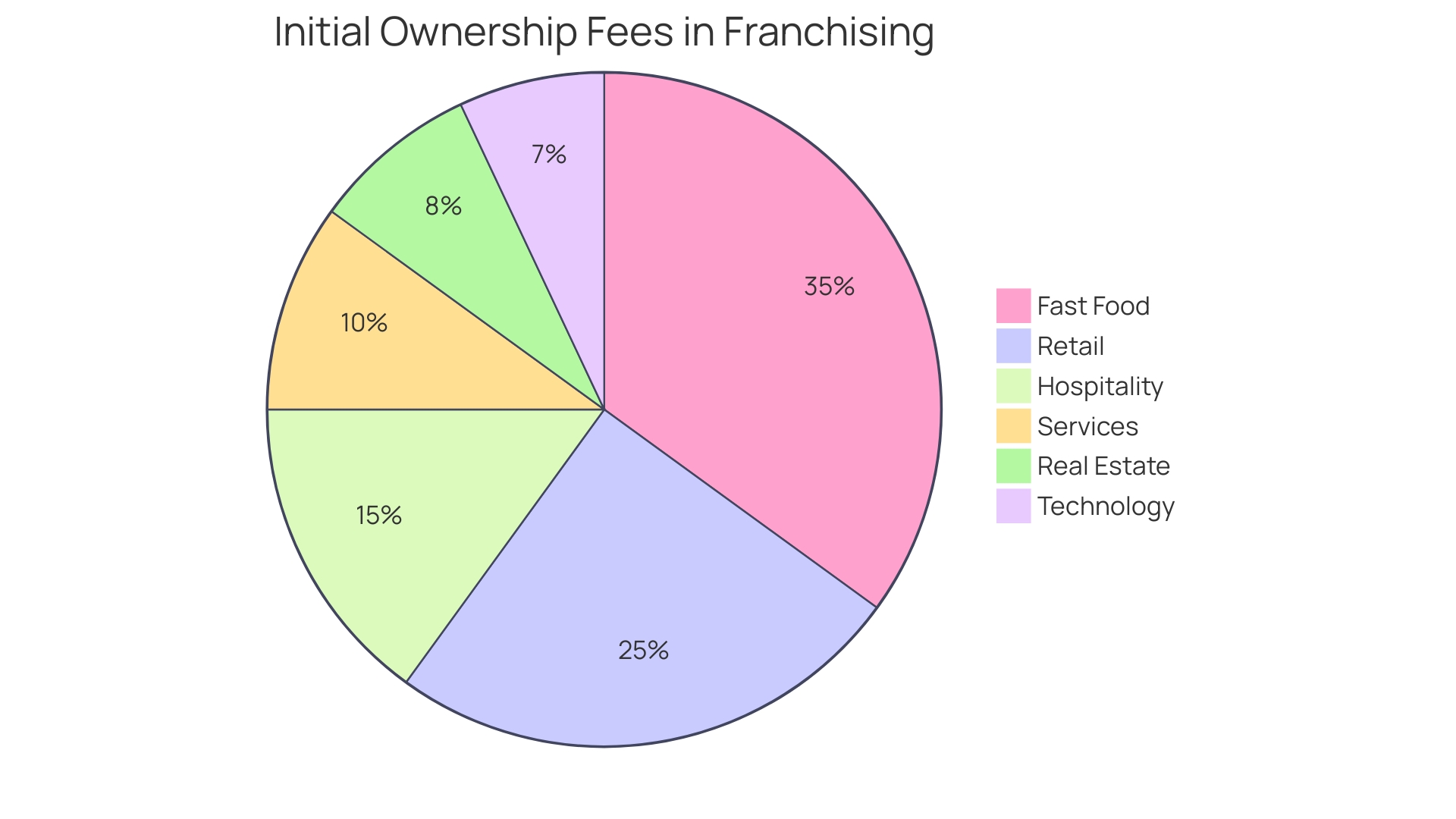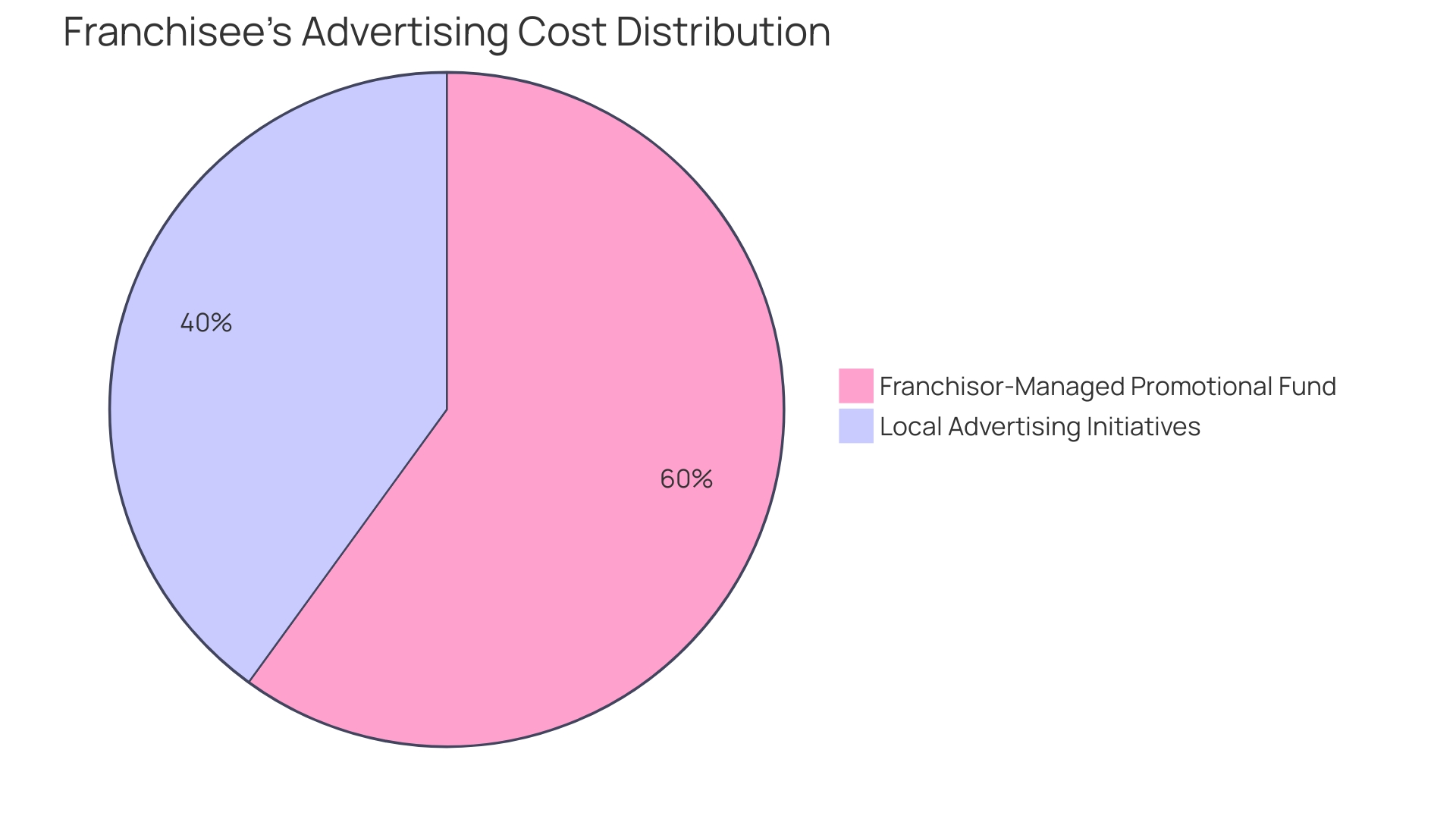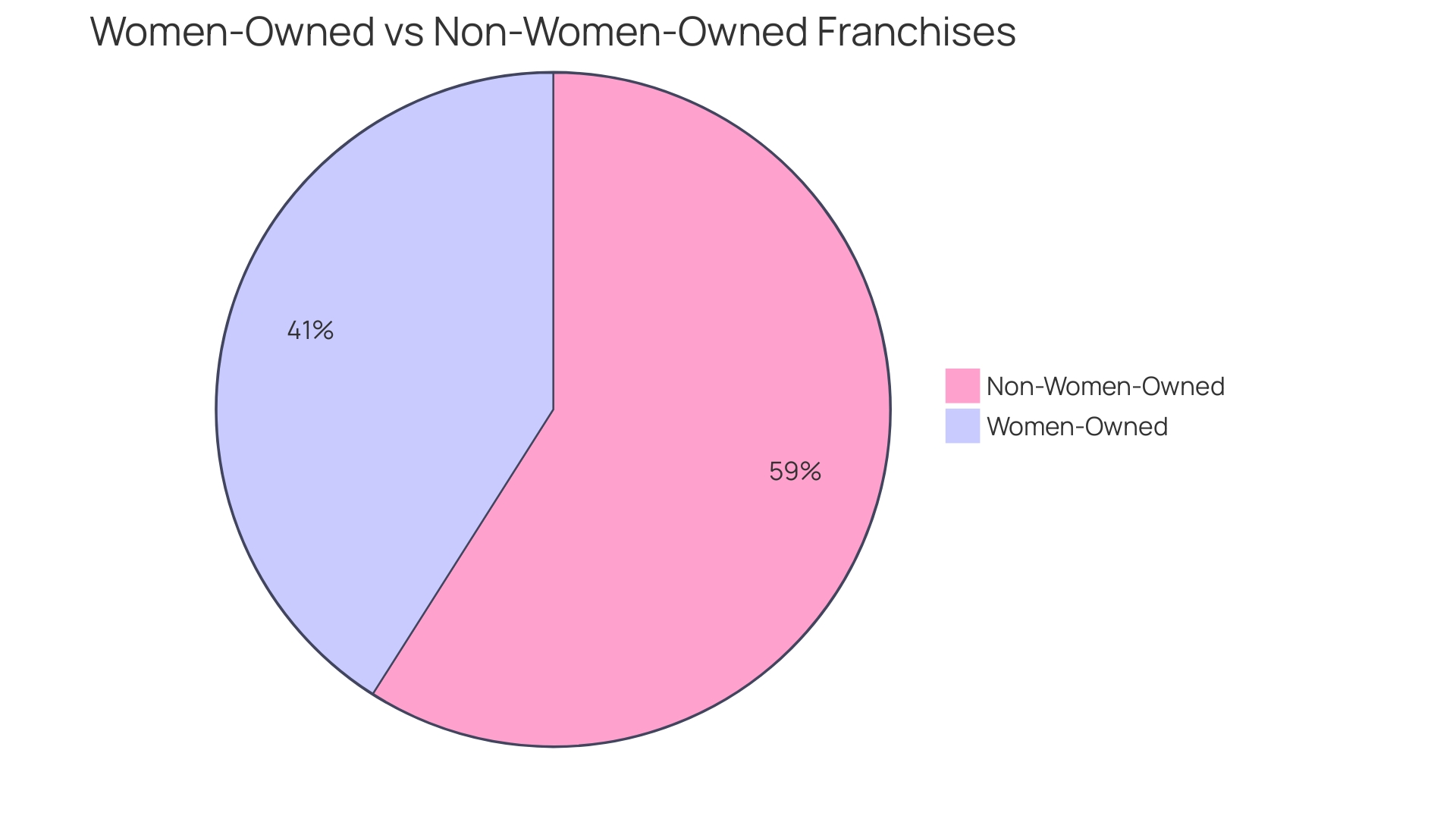Introduction
Franchise ownership can be an exciting and rewarding path to entrepreneurship, offering the opportunity to leverage established brands and proven business models. However, before diving into the world of franchising, it’s crucial to have a clear understanding of the financial aspects involved. This article explores key considerations such as the initial franchise fee, ongoing royalty fees, marketing and advertising costs, and equipment and inventory expenses.
By delving into these topics, potential franchisees can gain valuable insights and make informed decisions that align with their financial goals and personal capital. Whether you’re a career transitioner or a budding entrepreneur, this article will equip you with practical advice and guidance to navigate the challenges of franchise ownership. So let’s dive in and uncover the financial landscape of franchising!
Initial Franchise Fee
The initial ownership fee is a critical step in your journey towards business ownership, serving as the gateway to a company’s heritage, operational methodologies, and ongoing support. This single investment differs greatly among industries and individual brands, highlighting the brand’s market position and the inherent value it guarantees. Take KFC, for instance, a global powerhouse in the fast-food sector. To join KFC’s extensive network, with more than 25,000 locations, one must invest between $1.4 million to $3.1 million, covering not only the fee for joining but also real estate, construction, equipment, and initial operating costs.
For those considering a business opportunity, it’s not only about the upfront fee but also the potential for earnings and the suitability of the investment to your financial landscape. Assessing the startup costs, which include the licensing fee, location development costs, and potential earnings through reviewing the franchise disclosure document, is crucial. Moreover, understanding the local market demand, demographics, competition, and consumer preferences helps in making an informed decision.
Franchising could be a favorable opportunity, especially for women entrepreneurs, who have shown a remarkable 24% increase in ownership of franchise businesses over the past decade. With franchising, one can leverage the advantages of an established name and a proven business model, offering a more secure path to entrepreneurship with a potentially lower financial risk. Remember, the right franchise should align with your budget, financial goals, and personal capital, as the success of your venture largely depends on these foundational decisions.

Ongoing Royalty Fees
Franchise ownership entails a partnership where the franchisee is granted the right to operate under the franchisor’s name and system. An essential part of this agreement is the continuous royalty fees – a recurring cost that franchisees incur for the privilege of still utilizing the franchisor’s intellectual property and systems. Calculated as a percentage of gross sales, typically between 4% to 8%, these payments are made regularly—often monthly or quarterly—and are pivotal in ensuring that franchisees receive the operational support and services they need to thrive.
Royalty fees are more than just a cost; they represent a franchisee’s investment in a proven business model. The funds collected from these fees contribute to the franchisor’s ability to offer ongoing training, marketing support, and system improvements, all of which are essential for maintaining consistency and value. It is therefore crucial for franchisees to thoroughly understand the royalty fee structure and how it fits into their financial planning. Achieving success in the world of business opportunities requires a sharp attention to detail, especially when it comes to financial commitments and their effect on profitability.
Franchise agreements lay the groundwork for this financial relationship, detailing the obligations and rights of both franchisor and franchisee. It’s a safeguard for franchisees’ investments and a commitment to mutual success. With the trend of increasing women-owned business opportunities, which has grown by 24% over the past decade, it’s clear that franchising is a viable path to entrepreneurship that offers a balance of structured support and independence—allowing entrepreneurs to leverage a company’s reputation while building their own business.
Marketing and Advertising Costs
Mastering the economic terrain of owning a business necessitates a sharp comprehension of the associated promotional and advertising costs. Franchisees are often required to contribute to a franchisor-managed promotional fund, which is crucial in creating campaigns that enhance the franchise image collectively. This mandatory contribution, generally a percentage of the franchisee’s gross sales, falls between 1% and 3%. In addition to the fund for promotion, franchisees should also allocate funds for local advertising initiatives to further improve brand visibility and attract clientele.
The digital revolution has transformed advertising strategies, making online advertising pivotal for franchise success. Strategies like email outreach, social media engagement, and search engine optimization are now crucial, harnessing the internet’s vast reach to engage with consumers and boost sales. This evolution mirrors the changing dynamics of consumer-business interactions in the tech era, highlighting the significance of embracing digital promotion channels.
When evaluating a business opportunity, it’s important to assess the initial investment, which can vary from a small $500 to a substantial $250,000, in relation to the potential earnings and market demand of the opportunity. The franchisor’s support, including training and marketing assistance, also plays a critical role in a franchisee’s success. Moreover, with the role of technology in enhancing time efficiency, business models have developed, enabling owners more flexibility and the choice to be semi-absentee in some instances. This transition from the conventional owner-operator dedication can provide a balanced approach to business management.
In this digital age, a marketing opportunity presents a compelling chance for those looking to embark on ownership, offering a blend of proven strategies and innovative solutions for today’s market challenges.

Equipment and Inventory Expenses
When considering ownership of a business model, it’s vital to understand the costs associated with equipment and inventory. The kind of business you choose will determine the particular equipment, machinery, or technology you’ll need to effectively operate the enterprise. For example, a mobile oil change service like Luby Dudes requires a vacuum system for oil changes and has an efficient process for disposing of used oil. Franchisees must also keep up with inventory demands, which can fluctuate based on customer needs and industry trends.
Investing in a business opportunity within a thriving industry can be key to ensuring steady demand for your products or services. It is important to assess the potential of the business opportunity by comparing costs, profitability, and growth potential. Some companies offering business opportunities may include the initial investment fee in the total cost, while others charge it separately, which can be a significant and recurring expense.
The movement towards mobile businesses is worth noting, especially for their lower start-up costs and convenience for customers. Mobile enterprises like mobile franchises empower entrepreneurs to offer services directly at their customers’ places, removing the necessity for physical setups. This adaptability is reflected in the growing number of women-owned business opportunities, which have increased by 24% over the past decade, with 41% of new business opportunities launched in the last two years being women-owned.
Comprehending the agreement of a business partnership is also essential. This legal document outlines your rights and obligations, granting you the license to use the franchisor’s intellectual property and systems. It serves as a safeguard for your investment, emphasizing the importance of conducting comprehensive research and due diligence before making a commitment.
To make an informed decision, consider utilizing resources like the Franchise Fee Guide, which provides insights into franchise-fee structures across various hotel brands. Such studies emphasize the significance of choosing the correct business collaboration to maximize your investment potential. With a clear grasp of the financial obligations, equipment, and inventory needs, as well as the benefits of mobile franchise models, you can plan your budget with confidence and embark on a successful franchise venture.

Conclusion
In conclusion, franchise ownership offers the opportunity to leverage established brands and proven business models. It is crucial to understand the financial aspects involved, including the initial franchise fee, ongoing royalty fees, marketing and advertising costs, and equipment and inventory expenses.
The initial franchise fee serves as a gateway to a brand’s heritage and operational methodologies. Evaluating startup costs and potential earnings is essential. Ongoing royalty fees are recurring expenses that franchisees pay for the right to use the franchisor’s intellectual property and systems.
Understanding the royalty fee structure is crucial for profitability.
Marketing and advertising costs are important for brand visibility and attracting customers. Franchisees may contribute to a franchisor-managed marketing fund and should budget for local advertising initiatives. Digital marketing plays a vital role in reaching consumers in today’s tech era.
Equipment and inventory expenses vary depending on the franchise type. Evaluating costs and considering potential demand is crucial. Mobile franchises offer lower start-up costs and convenience for customers, making them attractive options.
Understanding the franchise agreement is fundamental for protecting your investment. Thorough research and due diligence are necessary before committing to a franchise.
By considering these financial aspects and conducting thorough research, potential franchisees can make informed decisions that align with their financial goals. Franchise ownership offers a balance of support and independence. With the right preparation and understanding, you can embark on a successful franchise venture.


